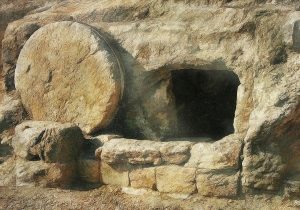‘Can Anything Good Come Out of Nazareth?’ By Babatunde Olugboji
In John 1:46, Nathanael posed the question, “Can anything good come out of Nazareth?” Initially, this may appear to be a peculiar inquiry, yet it significantly reflected the Jewish perception of both Nazareth and the Galilee region. Beginning in John 1:35, Jesus started calling his first disciples, including Nathanael. The day following Jesus’ baptism, He was with John the Baptist and His disciples, when John declared, “Behold, the Lamb of God!” (John 1:36). 
Following this declaration, 2 of John’s disciples began following Jesus. One of these disciples was Andrew, the brother of Simon Peter. Andrew went to find Peter so that he too could follow Jesus. Subsequently, Jesus traveled into the Galilee region and called Philip, who then located Nathanael. Philip announced to Nathanael, “We have found the one Moses wrote about in the Law, and about whom the prophets also wrote -Jesus of Nazareth, the son of Joseph” (John 1:45).
Nathanael responded skeptically: “Can anything good come out of Nazareth?” Nazareth was a town situated approximately 55 miles north of Jerusalem. During Jesus’ time, the Jews regarded those from Nazareth, a city within Galilee, with disdain. It was a tiny community with an estimated 500 people during Jesus’ earthly ministry. Being so small, and not adjacent to major cities, it was the last place one would expect anything interesting to happen.

The humble origins of Nazareth played a crucial role in comprehending Matthew’s assertion that Jesus “fulfilled what was said through the prophets, that He would be called a Nazarene” (Matthew 2:23). The Old Testament did not explicitly state that Jesus would originate from Nazareth, so what was Matthew referring to? He was probably referring to prophecies concerning Christ that indicated how he would be scorned and mistreated by others.
Psalm 22:6–7 portrayed Christ as being “scorned by everyone, despised by the people” as “they hurl insults, shaking their heads.” Isaiah 53:3 depicted Christ as “despised and rejected by mankind.” These passages may be the prophecies Matthew references in his claim that “He would be called a Nazarene.” 
Nathanael’s derisive inquiry, “Can anything good come out of Nazareth?” foreshadowed the reality that Jesus would face even greater mockery from others (see John 7:42). The long-awaited Messiah was to be revered highly. Thus, why would he emerge from a place like Nazareth?
The unexpected answer is “yes.” God chose for His Son, the Savior of the world, to come from Nazareth. “God chose the foolish things of the world to shame the wise; God chose the weak things of the world to shame the strong. God chose the lowly things of this world and the despised things -and the things that are not -to nullify the things that are” (1 Corinthians 1:27–28). This theme recurred throughout Scripture: Joseph, Ruth, Gideon, and David all started from humble, disregarded beginnings, yet God selected them and utilized them in remarkable ways.
Jesus was perceived as foolish, weak, lowly, and despised by the standards of this world (see John 19:1–5), and to add to this, he hailed from Nazareth. Jesus exemplifies how God employs the weak (by human standards) to confound the wise (also by human standards) in order to glorify himself.
Did you notice that Nathanael’s demeanor quickly shifted after engaging with Jesus when he declared: “Rabbi, you are the Son of God; you are the king of Israel” (John 1:49).
When we meet Jesus, everything changes.
Have a great week!
Questions or comments?
+1-732-554-1376 (WhatsApp)


